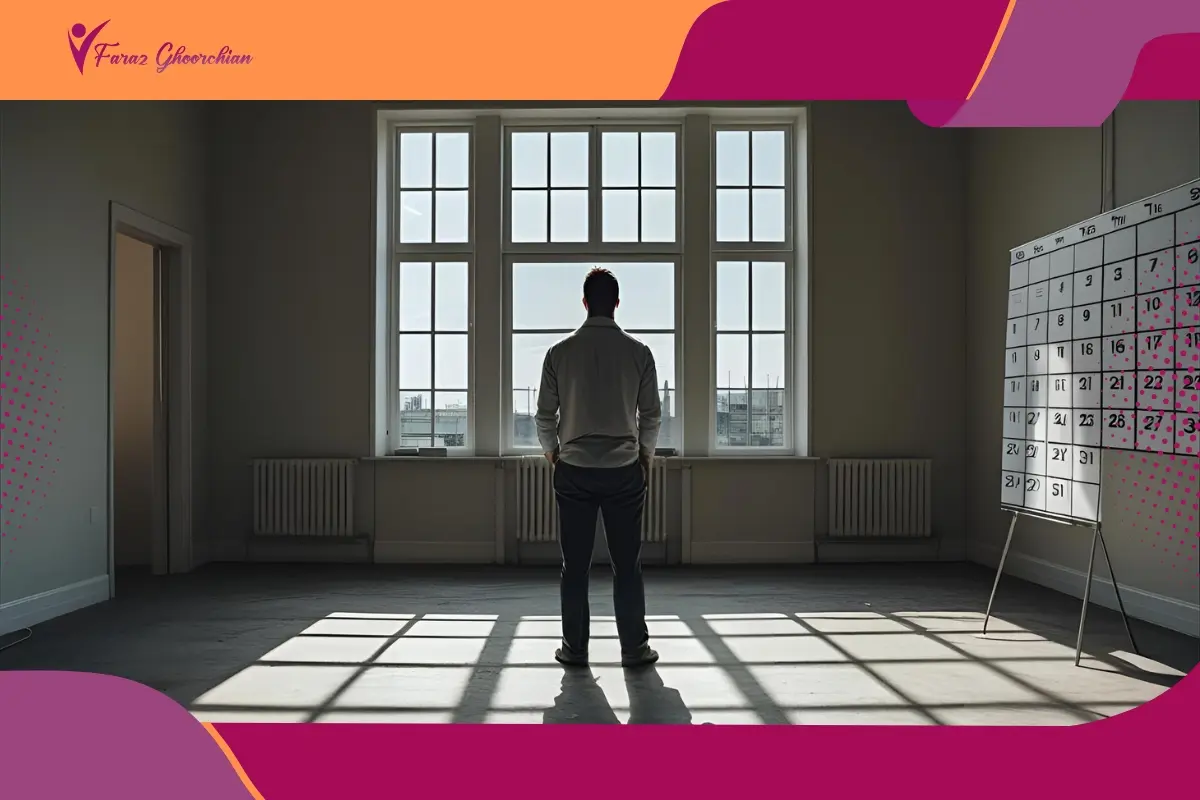Discover practical strategies for facing challenges in life, from real-world examples to effective coping methods. Learn how to stay positive, overcome life struggles, and grow stronger.
- 1. Introduction: The Meaning and Importance of Facing Challenges in Life
- 2. Why Are Challenges Good in Life?
- 3. Common Life Struggles and How They Impact Us
- 4. Real-Life Examples of Facing Challenges
- 5. What Are the Biggest Challenges People Face in Life?
- 6. Coping with Life Challenges: Mindset and Emotional Resilience
- 7. Strategies for Dealing with Difficult Situations
- 8. How to Overcome Challenges in Life and Stay Positive?
- 9. Practical Solutions for Challenges in Life
- 10. Conclusion: Turning Obstacles into Opportunities
Introduction: The Meaning and Importance of Facing Challenges in Life
Everyone faces difficult moments at some point. It might be a major event like losing a job when expenses are already high or something more personal such as a falling out with a close friend. These experiences are what people often mean when they talk about facing challenges in life. They are the times that push a person out of their comfort zone and make them adapt in ways they never expected. The challenges in life meaning goes beyond the problem itself. It is about how someone changes while trying to overcome it. These moments can reveal strengths that were hidden, shift the way a person sees the world, and prepare them for the next test life will bring.
Why Are Challenges Good in Life?
When things are going smoothly, it is easy to forget how much we learn from the tough moments. Looking back, many people find that facing challenges in life was the push they needed to grow. Struggling through a failed project, adjusting to a new city, or even repairing a damaged friendship can teach skills no book could cover. These are the life challenges that shape who we are, often revealing patience, adaptability, and hidden strengths. Overcoming life challenges can also lead to increased self-esteem, because every solved problem is proof that you can handle more than you thought. While no one asks for problems, they tend to leave behind valuable lessons. Over time, the difficulties you face can become the very reason you feel more prepared, more grounded, and more capable of handling whatever comes next.
Common Life Struggles and How They Impact Us
Ask ten different people about their hardest moments and you will probably hear ten different stories. Still, certain patterns repeat. These common life struggles have a way of showing up when you least expect them, and while they are never fun in the moment, they often leave behind lessons you carry for years. Some examples of challenges in life could be:
- Wondering if the bills will get paid this month and quietly doing the math in your head while waiting in line at the store
- A friendship or relationship that once felt easy suddenly feeling strained, like you are speaking two different languages
- Losing a job and staring at a blank calendar the next day, not sure where to even begin
- That phone call from a doctor that makes you stop whatever you were doing and just sit there for a while
- Family responsibilities that feel endless, no matter how many boxes you tick off your list
Even smaller things, such as handling common bad habits in children, can influence how someone deals with stress later on. These experiences are rarely welcome, but they shape patience, perspective, and the quiet kind of strength that is hard to measure until it is tested again.
Real-Life Examples of Facing Challenges
Sometimes the best way to understand resilience is to think about the people you know, or the stories you have heard, where life took an unexpected turn. One real-life example of facing challenges is losing a job without warning. It can feel like the ground shifts under your feet. In the middle of Job Loss and Unemployment Stress, some people find themselves learning new skills late at night or sending out résumés over coffee, hoping for a reply. A few even stumble into a new path they had never considered before.
Another could be a sudden health problem. At first there is confusion, then the slow process of adjusting to a new routine. Progress comes in small wins, like walking a little farther or feeling stronger after a treatment.
Even mending a friendship after a bitter disagreement counts as one of those overcoming challenges examples. These examples of challenges in life may not be the same, but they share something in common: each one changes the way a person sees themselves and what they are capable of.
What Are the Biggest Challenges People Face in Life?
When people talk about what are the biggest challenges people face in life, the answers are rarely simple. For many, facing challenges in life begins with money worries. The rent is due, the car needs repairs, and there is never quite enough left over. Others feel the weight of strained relationships, whether it is family tension, a close friend drifting away, or the end of a partnership. Work troubles also stand out. Being stuck in the wrong job or passed over for a promotion can drain motivation. Health problems, sudden or long-term, can change everything, sometimes overnight. Even social isolation, though quieter, is one of the biggest challenges in life because it makes every other problem feel heavier. These moments may differ in detail, but they all push people to adapt, rethink priorities, and look for solutions for challenges in life that will help them keep moving forward.
Coping with Life Challenges: Mindset and Emotional Resilience
When you are in the middle of a problem, figuring out how to start coping with life challenges can feel like trying to see through fog. Some days you might want to do everything at once, and other days you do nothing at all. A steady mindset helps, but it does not appear overnight. It grows from small choices, like deciding to walk around the block instead of scrolling on your phone, or keeping a notebook nearby to jot down what is on your mind. Over time, little things like this turn into positive habits for a productive life, which can make the hard days a bit lighter.
Emotional resilience is another part of it. That is noticing when you are frustrated or tired, and still finding a way to keep moving. It might mean talking to someone you trust, saying no when you need to, or cutting big problems into smaller ones. When facing challenges in life, those small wins matter more than most people think.
Strategies for Dealing with Difficult Situations
Finding the right strategies for dealing with difficult situations often happens when you are right in the middle of them. No guide is perfect, but a few habits can make the weight feel lighter. Some that tend to help include:
- Break a big challenge into the smallest steps you can think of. Even one completed step can shift your mood.
- Ask someone you trust for their view. They might notice something you have overlooked completely.
- Keep close to the people who help you feel calm, especially when your first instinct is to pull away.
- Be ready to change the plan halfway through if it is clear the original one is not working out.
- On restless days, jot down priorities or a loose plan just to get the thoughts out of your head.
When facing challenges in life, these small actions connect naturally to challenges in life and how to overcome them. Some mix them with goal-setting tools like the 10 ways to achieve your goals approach, keeping motivation alive while slowly working toward a solution.
How to Overcome Challenges in Life and Stay Positive?
Figuring out how to overcome challenges in life and stay positive is rarely a straight path. Some days you feel like you are making progress, and the next you are right back where you started. That is normal. What matters is finding a way to keep moving. For many, it begins with focusing on what can actually be changed instead of wasting energy on what cannot.
Small habits help more than people expect. Going for a walk after a stressful day, writing down what is bothering you, or talking it through with someone you trust can shift your mood. Over time, these habits can replace patterns that slow you down, and it is proof that bad habits change life just as much as better ones can.
Staying positive does not mean pretending things are fine. It is noticing the problem, breaking it into steps you can handle, and celebrating small wins along the way. When facing challenges in life, even one encouraging conversation or a moment of gratitude can make the road ahead feel less heavy.
Practical Solutions for Challenges in Life
Most solutions for challenges in life are not quick fixes. They build over time, often through trial and error, and they do not look the same for everyone. Still, a few approaches tend to make a difference:
- Write the problem down in plain words. Seeing it on paper can make it feel less like a storm in your head.
- Break the challenge into tiny steps. Even one small task finished can shift how you feel.
- Ask someone who has been through something similar. Sometimes their advice is practical, sometimes it is just reassuring.
- Keep track of what you have tried. It is easy to forget what worked and what made things harder.
- Set short-term goals that feel doable, even if the bigger issue will take months.
- Be willing to change your plan halfway through if it is clearly not working.
When facing challenges in life, these small actions add up. They might not solve everything at once, but they build the skills and confidence to face the next hurdle with more certainty.
Conclusion: Turning Obstacles into Opportunities
For most people, facing challenges in life is rarely about finding a flawless fix. It is about taking what is in front of you and figuring out how to work with it. Sometimes the lesson comes quickly, other times it takes years to see it clearly. Learning how to overcome challenges in life and stay positive often means looking for small wins and noticing the progress you might have missed in the moment. Even the wrong turns can guide future choices. When someone starts treating problems as chances to test new ideas or build new skills, they often realize those same struggles made them stronger. In that way, the obstacle slowly becomes the opportunity.















